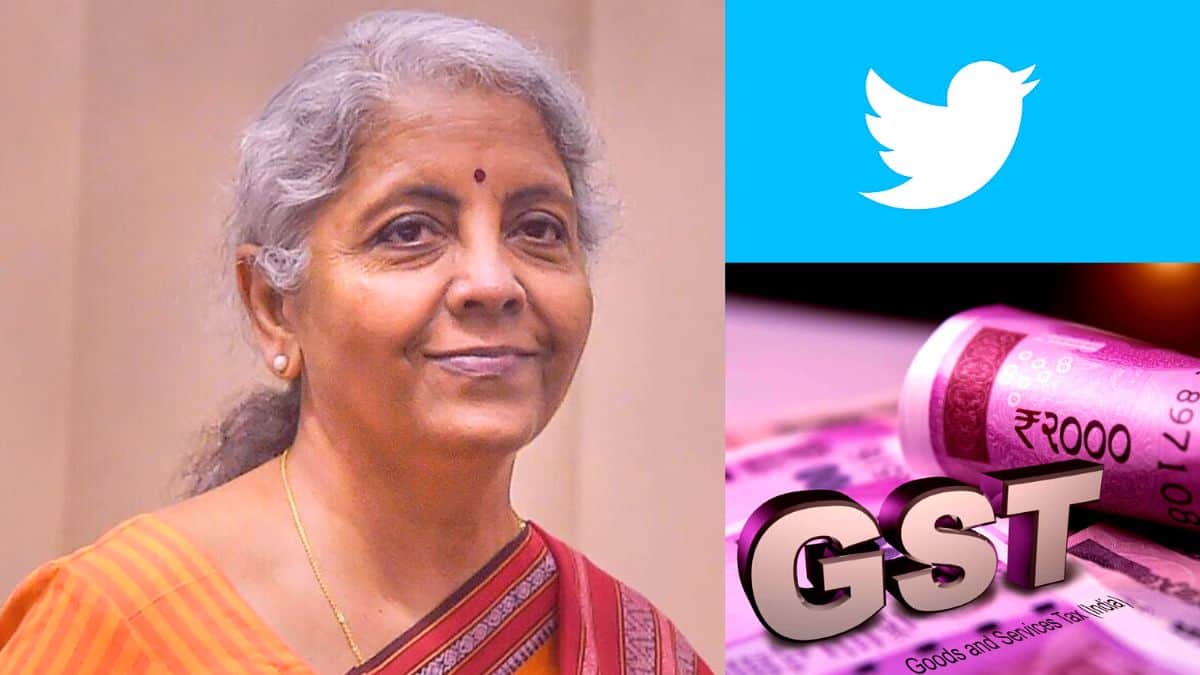Finance Minister Nirmala Sitharaman clarifies details regarding GST imposition on commodities on Twitter

The Finance Minister of India Nirmala Sitharaman clarified the decisions taken at the 47th GST Council meeting, including the list of food items that won’t come under GST imposition on Twitter. She has given a list of food items that would be exempt from GST imposition following the decision-making process, such as pulses/daal, wheat, rye, oats, maize, rice, atta/flour, suji/rawa, besan, puffed rice, and curd/lassi on July 19.
She added that food items would not attract any GST when sold loose and not pre-packed or labeled.
#GST @FinMinIndia @PIB_India @PIBMumbai @PIBChandigarh @PIBHyderabad @pibchennai @PIBKolkata @PIBKohima @PIBGuwahati @PIBHindi @cbic_india https://t.co/EDWfuYnGzC
— Nirmala Sitharaman (@nsitharaman) July 19, 2022
She has addressed the misconception regarding the imposition of GST on Twitter saying, “Recently, the GST Council in its 47th meeting recommended to reconsider the approach for the imposition of GST on specified food items like pulses, cereals, flour, etc. There have been a lot of misconceptions about this that have been spread. Here is a thread to lay the facts.”
She said that this is not the first time that the food items are being taxed as prior to the GST imposition, “Punjab has collected more than Rs. 2,000 cr on food grains by way of purchasing tax.” and UP collected almost Rs. 700 crores along with attaching the VAT rates on rice imposed by various states.
Is this the first time such food articles are being taxed? No. States were collecting significant revenue from foodgrain in the pre-GST regime. Punjab alone collected more Rs 2,000 cr on food grain by way of purchase tax. UP collected Rs 700 cr. (2/14) pic.twitter.com/T5G6FZ6lv5
— Nirmala Sitharaman (@nsitharaman) July 19, 2022
According to the Finance Minister, the 5% GST imposition was enacted on “BRANDED” food items sold later the tax was altered on registered brands only. However, soon after even reputed brands and manufacturers started misusing GST revenue from the items.
However, soon rampant misuse of this provision was observed by reputed manufacturers & brand owners and gradually GST revenue from these items fell significantly. (4/14)
— Nirmala Sitharaman (@nsitharaman) July 19, 2022
The suppliers and industry associates complained and urged the government to impose uniform GST on every packaged commodity to stop the misuse. The government also observed a rapid tax avoidance strategy taken by certain manufacturers. The government imposed 5% GST on all packaged products to tackle such tax dodging acts.
The minister also mentioned that in the Fitment Committee meetings officials from 15 states such as Rajasthan, West Bengal, Tamil Nadu, Bihar, Uttar Pradesh, Karnataka, Maharashtra, Haryana & Gujarat have also complained about this issue of tax dodging and the ways to curb misuse.
The minister added, “It is in this context that the GST Council in its 47th meeting took the decision. With effect from July 18, 2022, only the modalities of imposition of GST on these goods was changed with no change in coverage of GST except 2-3 items..”
She also mentioned that GST will be applied to pre-packaged and labeled products only under the provision of the Legal Metrology Act, to establish and enforce standards of weights and measurements in the commodity.
The minister later added that all states were present including non-BJP states during the meeting in the 47th GST Council and the issues were presented by the Group of Ministers. She said, “This was a unanimous decision by the GST Council. All states were present in GST Council when this issue was presented by the Group of Ministers on Rate Rationalisation in the 47th meeting held in Chandigarh on Jun 28, 2022. ”
This was a unanimous decision by the GST Council. All states were present in GST Council when this issue was presented by the Group of Ministers on Rate Rationalisation in the 47th meeting held in Chandigarh on Jun 28, 2022. (11/14)
— Nirmala Sitharaman (@nsitharaman) July 19, 2022
All States, including non-BJP States (Punjab, Chhattisgarh, Rajasthan, Tamil Nadu, West Bengal, Andhra Pradesh, Telangana, Kerala) agreed with the decision. This decision of the GST Council is yet again by consensus. (12/14)
— Nirmala Sitharaman (@nsitharaman) July 19, 2022
In conclusion, the Finance Minister mentioned that the GST changes were needed to curb the tax leakage with full effect with the help of various officers, the Group of Ministers, and the recommendations by the GST Council itself.
To conclude: this decision was a much-needed one to curb tax leakage. It was considered at various levels including by officers, the Group of Ministers, and was finally recommended by the GST Council with the complete consensus of all members. (14/14)
— Nirmala Sitharaman (@nsitharaman) July 19, 2022


